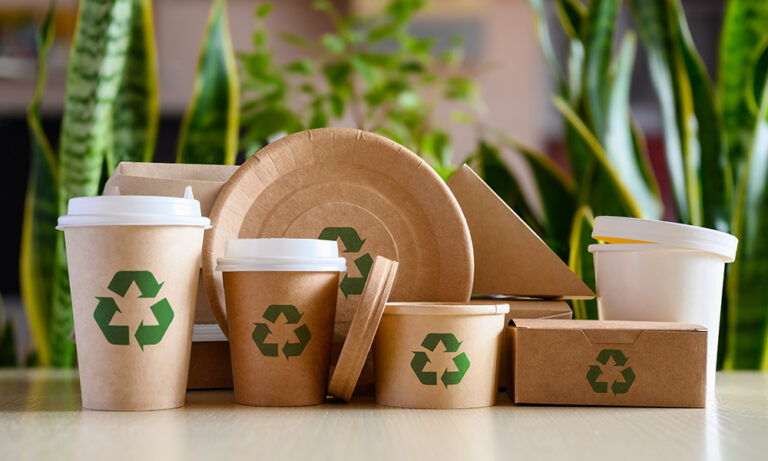In recent years, the need for sustainable alternatives to conventional plastic has grown exponentially. With increasing environmental concerns and the push for a greener planet, compostable materials have emerged as a promising solution. India, as one of the largest producers of eco-friendly products, is at the forefront of this sustainable revolution. Several compostable materials manufacturers in India are paving the way for an environmentally responsible future by developing innovative, biodegradable solutions.
Understanding Compostable Materials
Compostable materials are those that break down naturally into organic matter, leaving no toxic residue behind. Unlike traditional plastics, which take hundreds of years to decompose, compostable materials decompose within a few months under the right conditions. These materials are derived from natural substances like cornstarch, sugarcane, and cellulose, making them a viable alternative for packaging, disposable cutlery, and more.
India’s Growing Role in Compostable Material Manufacturing
India has become a hub for sustainable innovation, particularly in the field of compostable materials. The government’s stringent policies on plastic use, coupled with rising consumer awareness, have accelerated the demand for eco-friendly solutions. As a result, compostable materials manufacturers in India are investing in research and development to create high-quality, durable, and sustainable products.
Key Sectors Driving Compostable Material Adoption
- Food Packaging Industry: The food packaging sector is one of the largest consumers of compostable materials. Many Indian manufacturers are producing biodegradable food containers, straws, and cutlery to replace single-use plastics. This shift not only benefits the environment but also caters to the growing demand for sustainable dining solutions.
- Retail and E-Commerce: With the boom in online shopping, packaging waste has surged. Indian companies are addressing this issue by offering compostable mailers, bubble wraps, and carry bags that decompose naturally, reducing the carbon footprint of e-commerce businesses.
- Agriculture: Farmers are increasingly adopting compostable mulch films, bags, and seedling trays to enhance crop yield without harming the soil. These materials help retain soil moisture, suppress weed growth, and decompose harmlessly post-harvest.
- Healthcare and Medical Industry: The healthcare sector is adopting biodegradable gloves, aprons, and packaging solutions to minimize medical waste. Compostable alternatives are not only safe for the environment but also for human health.
Benefits of Using Compostable Materials
- Eco-Friendly and Sustainable: Compostable materials significantly reduce environmental pollution by breaking down into organic matter without releasing harmful toxins. This helps in reducing landfill waste and ocean pollution.
- Reduces Carbon Footprint: Manufacturing compostable materials requires fewer fossil fuels compared to conventional plastic production, making them a more sustainable option.
- Supports Circular Economy: Since compostable products return to the earth as nutrients, they contribute to a circular economy where resources are reused and recycled instead of discarded.
- Compliance with Government Regulations: India has imposed strict bans on single-use plastics in many states. Businesses that switch to compostable materials can avoid penalties and align with sustainability regulations.
Challenges in the Compostable Material Industry
Despite the rapid growth, there are several challenges that manufacturers face:
- Higher Production Costs: The raw materials and technology required to produce compostable materials are costlier than traditional plastic.
- Limited Consumer Awareness: Many consumers are still unaware of the benefits of compostable materials, leading to slower adoption rates.
- Composting Infrastructure: India lacks widespread industrial composting facilities, which are essential for processing these materials effectively.
Future of Compostable Materials in India
The future of compostable materials in India looks promising. With continued investment in research, better government support, and increased consumer awareness, compostable products will become more mainstream. Many Indian startups and established companies are expanding their production capacities and collaborating with global sustainability initiatives to accelerate the transition towards a greener future.
Final Note
India is playing a significant role in the global shift towards sustainability. The country’s compostable materials manufacturers are making remarkable strides in offering eco-friendly solutions across various industries. As awareness grows and technology advances, compostable materials will become the norm, replacing harmful plastics and contributing to a healthier planet. By supporting and adopting compostable alternatives, businesses and consumers alike can be part of this green revolution and help shape a sustainable future.

